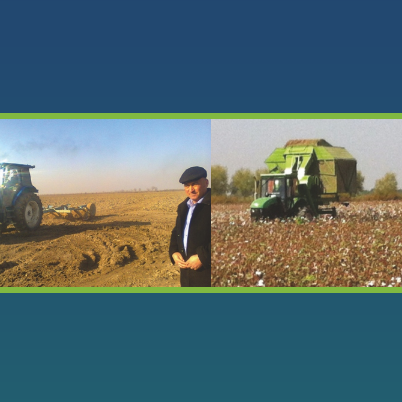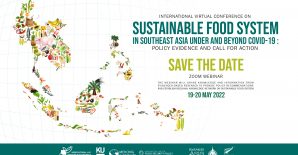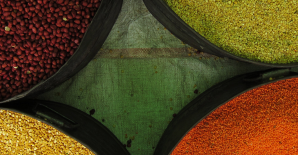Kazakhstan bans import of potatoes from Kyrgyzstan
(24 News Agency, 6 May 2016) Kazakhstan introduced a ban on the import of potatoes from Kyrgyzstan according to the official website of the Ministry of Agriculture of Kazakhstan. Imports of potatoes from Kyrgyzstan, infected with golden nematode, became more frequent recently. Since the beginning of 2016, there have been revealed 79 cases and prevented the import of more than 1 thousand tons of the infected tubers. "Nematode is highly harmful. The loss of potatoes crop ranges from 25 to 90 percent depending on the degree of soil contamination and persistence of the sort. In addition, the quality of the products is deteriorating, the infected potato forms small tubers or does not form it at all. Besides, nematode cysts are very viable. In the absence of solanaceous crops in the soil, it retains the viability for 10 years and more. The nematode is not afraid of drought, flooding and frost and is easily spread even with clods of earth, stuck to shoes and paws of animals, flood waters and wind," statement said…
Europe and Central Asia set sights on better nutrition, sustainable agriculture
(Asia-Plus, 06 May 2016) Having made major strides in reducing the prevalence of hunger, many countries in Europe and Central Asia are now looking to improve the quality of people's diets and transform their food systems in order to adapt to climate change, optimize the use of natural resources, and cut waste. The absolute number of hungry people in the region - measured in terms of their caloric energy intake - dropped by at least 40 percent since 1990, FAO Director-General José Graziano da Silva noted in a policy speech made on May 4 at the start of the biennial FAO Regional Conference for Europe in Antalya, Turkey.
FAO’s current forecast for world cereal production in 2016 stands at nearly 2 526 million tons
(Asia-Plus, 06 May 2016) FAO’s current forecast for world cereal production in 2016 stands at nearly 2 526 million tons, virtually unchanged from 2015 and fractionally above the volume predicted in April. The monthly revision resulted almost entirely from improved prospects for wheat production, now anticipated to hover around 717 million tons in 2016, that is 4 million tons higher than foreseen last month, but still 2.2 percent (16 million tons) below the 2015 record. The month-on-month upward revision of global wheat production mainly reflects an improved outlook in Europe, where favorable winter weather bolstered yield expectations in the EU, the Russian Federation and Ukraine.
Members hand FAO its homework for the next two years in Europe, Central Asia
(FAO News, 6 May 2016) Europe and Central Asia as a region appears determined to vigorously pursue the 17 Sustainable Development Goals adopted by all nations last year. Goals for hunger, poverty, climate change, water, sustainability, and marine ecosystems make the UN Food and Agriculture Organization a desirable partner in the effort. FAO’s Regional Conference for Europe concluded here today, with members calling on FAO to work with them on growing food for expanding populations and international markets while using more sustainable practices. “Save and Grow” or ecosystem-based agriculture is the new paradigm being advanced by the Organization. The impact of climate change on agriculture also emerged as a serious concern, one that directly affects almost all countries in the region. FAO is promoting what it calls “climate-smart agriculture” emphasizing productivity, adaptation, and reducing greenhouse gas emissions.
IMF notes absence of effective regulation mechanism of NB KR
(24 News Agency, 6 May 2016) International Monetary Fund notes the absence of effective regulatory mechanism of the National Bank of Kyrgyzstan. This is said in a statement on the results of the Institute's mission in Kyrgyzstan. It is noted that the financial sector of the Kyrgyz Republic is resistant to adverse economic conditions. A good capitalization of banks remains. The National Bank is closely monitoring the vulnerabilities caused by the adverse economic environment, a high degree of dollarization and the fluctuations of the national currency. The Central Bank uses the means at its disposal of prudential and other tools to strengthen the defense mechanisms of the sector.
Tajikistan signs Host Country Agreement with FAO
(FAO News, 5 May 2016) In a signing ceremony here today, on the margins of the 30th FAO Regional Conference for Europe, Minister of Agriculture of Tajikistan Izzatullo Sattori and FAO Director-General José Graziano da Silva signed a host country agreement formalizing the status of FAO’s office in Tajikistan. In his remarks on the occasion, Graziano da Silva noted that the agreement would strengthen FAO's partnership with Tajikistan and open up new opportunities for cooperation on common goals.
Publications
Assessing the social impact of cotton harvest mechanization in Uzbekistan: final report
(A World Bank Report, 04 May 2016) Swinkels, Robertus A; Romanova, Ekaterina; Kochkin, Evgeny; Swinkels, Robertus A. 2016. Assessing the social impact of cotton harvest mechanization in Uzbekistan: final report. Washington, D.C.: World Bank Group. Abstract: The Government of Uzbekistan (GoU) has recently adopted a policy to mechanize the cotton harvest as part of its drive to modernize the agricultural sector. Under Uzbekistan’s state-order system it is compulsory for many farmers to grow cotton. They are contractually obligated to produce stipulated quantities that are annually set by the government, and must sell these to the GoU at a price fixed by the government. Almost all cotton in Uzbekistan is harvested by hand, even though mechanization existed during the Soviet period. An estimated 2.2–3 million1 people were involved in at least some aspect of the cotton harvest during 2014. While cotton harvest mechanization might reduce the need for state-mobilized labor for manual cotton picking, it is unclear what impact it may have on those for whom the cash earned from picking cotton is an important part of their livelihood. This report presents the findings of a social impact assessment on cotton harvest mechanization. The study aimed to (i) to assess the ex-ante social impact of the policy to mechanize cotton harvesting on cotton pickers and vulnerable private farmers; and (ii) to identify ways to mitigate the policy’s potential negative impacts on these groups and to make these reforms more acceptable to them. The assessment is based on the collection and analysis of qualitative data and two background studies. Data were gathered in four regions that vary in terms of labor scarcity, area of land under cotton, cotton production conditions, and experience with mechanization.
The Impact of China on Europe and Central Asia
(A World Bank Report, April 2016) The economies of Europe and Central Asia (ECA) are facing complex headwinds. The policy reaction to those headwinds may change these economies for years to come. Against the backdrop of adverse global developments, the prospects for many ECA economies are for weak growth, at best. However, several of the headwinds also carry seeds for future growth. The collapse in oil revenues and remittances, and the associated sharp real depreciations, improve competitiveness in the production of internationally tradable products (this was also analyzed in detail in the September 2015 edition of the ECA economic update1). The weakening of the Euro, caused by monetary policies of the Federal Reserve and The European Central Bank moving in opposite directions, makes European countries more competitive, as is already demonstrated in recent export data. The current slowdown and transformation of China’s economy can make producers in ECA more competitive, even if the changes in China might also have negative welfare impacts for some parts of the region…
Regional Economic Outlook: Middle East and Central Asia
(IMF Report, April 2016) Economic growth has slowed to a two-decade low in the Caucasus and Central Asia (CCA) region, owing to the large and sustained decline in commodity prices, wide-ranging spillovers from Russia’s recession, and the slowdown and rebalancing of China’s economy. Fiscal and external balances have deteriorated and financing costs have risen. Although currency weakening and fiscal easing have helped to mitigate the impact of these shocks, inflation and financial sector vulnerabilities have increased, in some cases exacerbated by policy uncertainty. Strengthening macroeconomic policy frameworks and financial sector supervision is essential to maintain stability in these challenging circumstances. Fiscal policy should strike a balance, depending on the size of buffers and available financing, between supporting economic activity in the near term and ensuring debt sustainability over the medium term. Intensifying structural reforms would facilitate the adjustment by boosting medium-term economic prospects, improving competitiveness, and creating jobs.
Link to the Russian Version is available here.
High and Dry: Climate Change, Water, and the Economy
(A World Bank Report, May 2016) A new World Bank reports finds that water scarcity, exacerbated by climate change, could hinder economic growth, spur migration, and spark conflict. However, most countries can neutralize the adverse impacts of water scarcity by taking action to allocate and use water resources more efficiently.
Listening2Tajikistan: Survey of Wellbeing
(A World Bank Brief, April 2016) As the poorest country in Central Asia, Tajikistan is particularly vulnerable to shocks. From the current economic downturn in the Russian Federation, to seasonal electricity, water (Figure 1), and heating shortages, the country faces substantial risks to livelihoods and wellbeing. Some of these risks could potentially derail the extensive improvements seen for the poor and vulnerable over the past decade. Strong economic growth in Tajikistan has helped to lower the poverty rate from 37.4 percent in 2012 to 31.6 percent in the 1st quarter of 2015, but sustaining gains and ensuring further progress will be increasingly difficult in the current environment…




Leave a Reply